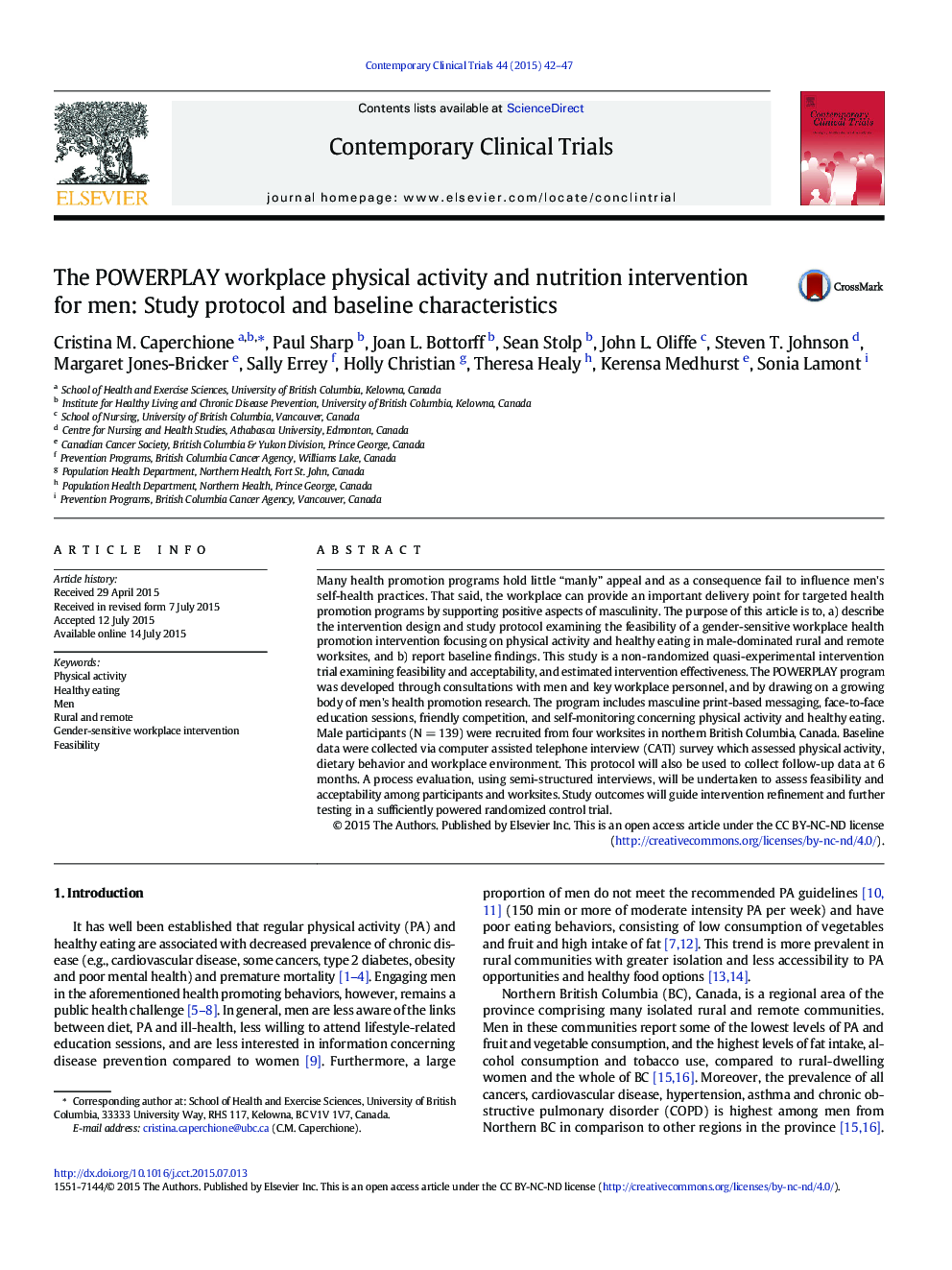| Article ID | Journal | Published Year | Pages | File Type |
|---|---|---|---|---|
| 6150896 | Contemporary Clinical Trials | 2015 | 6 Pages |
Abstract
Many health promotion programs hold little “manly” appeal and as a consequence fail to influence men's self-health practices. That said, the workplace can provide an important delivery point for targeted health promotion programs by supporting positive aspects of masculinity. The purpose of this article is to, a) describe the intervention design and study protocol examining the feasibility of a gender-sensitive workplace health promotion intervention focusing on physical activity and healthy eating in male-dominated rural and remote worksites, and b) report baseline findings. This study is a non-randomized quasi-experimental intervention trial examining feasibility and acceptability, and estimated intervention effectiveness. The POWERPLAY program was developed through consultations with men and key workplace personnel, and by drawing on a growing body of men's health promotion research. The program includes masculine print-based messaging, face-to-face education sessions, friendly competition, and self-monitoring concerning physical activity and healthy eating. Male participants (NÂ =Â 139) were recruited from four worksites in northern British Columbia, Canada. Baseline data were collected via computer assisted telephone interview (CATI) survey which assessed physical activity, dietary behavior and workplace environment. This protocol will also be used to collect follow-up data at 6Â months. A process evaluation, using semi-structured interviews, will be undertaken to assess feasibility and acceptability among participants and worksites. Study outcomes will guide intervention refinement and further testing in a sufficiently powered randomized control trial.
Related Topics
Health Sciences
Medicine and Dentistry
Medicine and Dentistry (General)
Authors
Cristina M. Caperchione, Paul Sharp, Joan L. Bottorff, Sean Stolp, John L. Oliffe, Steven T. Johnson, Margaret Jones-Bricker, Sally Errey, Holly Christian, Theresa Healy, Kerensa Medhurst, Sonia Lamont,
